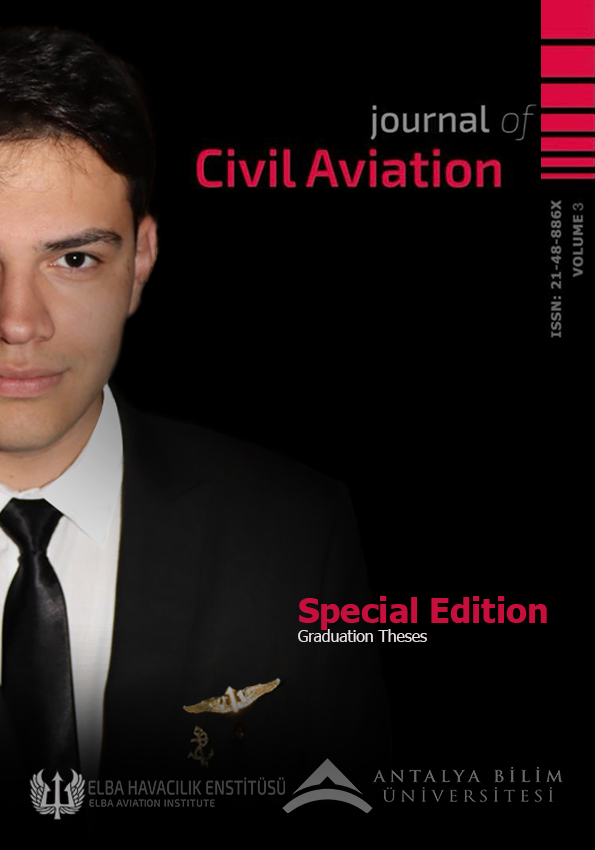Sera R. Beköz, Fergan Sarı, Aysun Sertel, Güneş Şanlıtürk, Batuhan Çetinkaya
Abstract
Pages 1-6
Download PDF
Among safety policies and protocols, which the civil aviation
authorities anticipate in order to achieve and maintain prior
involvement in monitoring and/or observing behavioral construction,
there is a fundamental action. The authority requires to know whether
a candidate has the base line capability of bearing and fulfilling the
requirements of the physical and mental pressures of the job on
student pilot candidate election programs. IATA’s pilot aptitude testing
need and guidance declares that the student pilot candidate election
programs should contain such parameters that a student pilot
candidate must succeed through (IATA,2019). We operated a test
protocol which was compatible with IATA’s demand of competence on
a student pilot candidate. With the predetermined success rates of
every test protocol battery, we provided results of the tests of spatial
attention, with regarding to the feedback from personality test, spatial
attention, spatial disorientation, perceptional focusing & memory,
spatial aptitude, decision making under stress, team work &
leadership. We analyzed the results of the tests and the spatial
attention sufficiency requirement has the least success rate in the
midst of basic abilities and sophisticated skills which a student pilot
candidate has to have. Among the 78 student pilot candidates, 38 pilot
candidates have failed from the pilot aptitude testing’s spatial
attention sufficiency parameter.
Sera Rüya Beköz, Mehmet Ali Pakalın, Üner Beköz
Abstract
Pages 7-12
Download PDF
In our institution, we started several programs three years ago to create and follow pilot trainers’ impact value and to find evidence to qualify all aspects of the training. Although the follow-up length of the study was determined to be five years, the COVID-19 pandemic circumstances forced us to analyze cumulated data for the past three years. The aim of the study was to test the hypothesis that the impact value of the trainer has a greater effect on students than the other parameters. What we found was not what we had expected. Meanwhile, we suggest that CBT is not the way to handle rational pilot training. EBT should be considered better and should be applied well in the training. We collected quite a lot of data to provide solid evidence.
Sera Rüya Beköz, Havvali Akteke
Abstract
Pages 13-19
Download PDF
This survey analyzed data of student pilots who were trained in the flight simulation training device (FSTD) in our institute before their inflight trainings started. The data from the FSTD revealed three most frequent reasons for student pilot failure in the given tasks. Fails and retakes of FSTD training numbers indicate the most problematic areas that students should master prior to inflight training. For the survey, a questionnaire was given to eight flight instructors. It was found that, FSTD training advances students who are capable in checklist utilization and communication observed in their first five hours of inflight training. The resulting data shows that the use of the FSTD for flight training before student pilots’ inflight training starts is highly advantageous.





